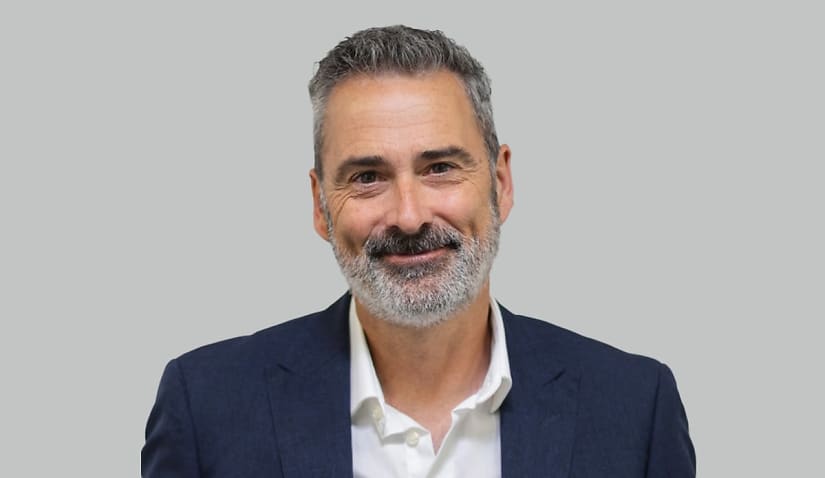For in-house counsel and legal departments, making small “incremental” changes can help their legal function become more proactive, according to LawVu’s Shaun Plant.

Shaun Plant is the LawVu chief legal evangelist, and he recently spoke at the Corporate Counsel Summit on mastering contract management.
Plant has been working with lawyers and in-house teams for the last 15 years and found that many teams are facing similar challenges now compared to back then.
At “the base” of a legal team’s work, according to Plant, lies a large volume of “low-value or low-complex” work, with a lesser volume of high-value and more complex work.
“I think many teams’ days are filled with a lot of complex admin. Things like navigating internal processes and using business-wide technology, searching through emails to find documents or to determine status or compounding reports. That’s all at the base of this, kind of, triangle; it’s the operational work that we have to do, manual processes and things like that,” he said.
“And then the next band up, you’ve got a little bit more of a complexity in terms of legal content, but it is quite low and you still got quite a large volume of that where you’ve got your NDAs and negotiating standard terms and conditions. It’s the kind of work that the business needs just to keep its wheels moving. Then in further band up, you’ve got less volume, but it’s more important work, and it’s work that delivers on the actual business strategy.
“Then right at the top, you’ve got this low volume but highly specialised work, and that work doesn’t come around very often, but when it does, it’s kind of the type of work that senior leadership and, in many ways, gets the attention of senior leadership and I think it determines or informs the business strategy as well.”
The problem within many organisations, Plant continued, is that many teams outsource higher-value work.
“It’s no wonder that many people in our organisations view our external law firms as the ones that are actually adding value rather than the internal team. So the framework that we’ve developed is to help us to change that. It’s intended to flip that around so the in-house has the time and the processes and the skills to move into that top part of the triangle to do more of that high-value work that’s so critical to the organisation.
“Leveraging your team’s legal skills and its legal knowledge and kind of digitising all that information that many of us have in our heads and getting out into a form where you can share that with other people in your team, so you can build their own capability. And at the same time, when you’re building that capability, you’re building capacity to deal with more of that. And then once you’ve got your own house in order, you turn your focus to the organisation,” he said.
“Developing a deeper understanding of it and its priorities, and you help the organisation to develop a better understanding of what legal does. We’re not seen as being a problem solver that’s just sitting there being reactive, waiting for work to come through that. We are this proactive function that does more than just solve legal problems, [and] you’re then better placed to prioritise the work. You become this proactive function, and then you have the ability to develop new skills outside of your pure legal lane.”
To achieve this, Plant said legal teams need to be asking their organisations what they need from them and any expectations of a legal function.
“It’s most important that we help the organisation to understand what we have the potential to contribute and how we can contribute and the other skills that we have apart from just being legal problem solvers. And that’s probably right at the heart of many of the issues that we have in the business, is that we do have this perception of legal being our core skill set and the thing that sets us apart from other people,” he said.
“And that might be right when you’re in a law firm, but when you’re an in-house lawyer, you’re part of the business and you’re part of the strategy and you’re part of the functioning of the business and the industry. Your organisation knowledge is equally as important as your legal. So, we need to talk to the business and help them to understand that that’s where we need to be operating, dealing with kind of routine daily issues.”
This is something in-house lawyers and teams need to be prioritising moving forward, in addition to “embracing change”.
“Once you’ve started to make yourselves more productive, you use that time for taking more productive actions as well. You don’t use it to do more legal work. So as soon as we build this into our kind of ways of working and develop a culture that says this is how we’re going to approach our change, then you’ll find that the cumulative effect of those small incremental changes just grows and you can start to build on those and leverage, and you’ll find that it just becomes a way of working,” Plant said.
“If you change into the powerhouse mindset that will become your way of working, you will have this continual improvement mindset, and you’ll be continually looking to leverage new opportunities and new technology, and it will just become a more enjoyable way of working.”
The transcript of this podcast episode was slightly edited for publishing purposes. To listen to the full conversation with Shaun Plant, click below:

Lauren is the commercial content writer within Momentum Media’s professional services suite, including Lawyers Weekly, Accountants Daily and HR Leader, focusing primarily on commercial and client content, features and ebooks. Prior to joining Lawyers Weekly, she worked as a trade journalist for media and travel industry publications. Born in England, Lauren enjoys trying new bars and restaurants, attending music festivals and travelling.